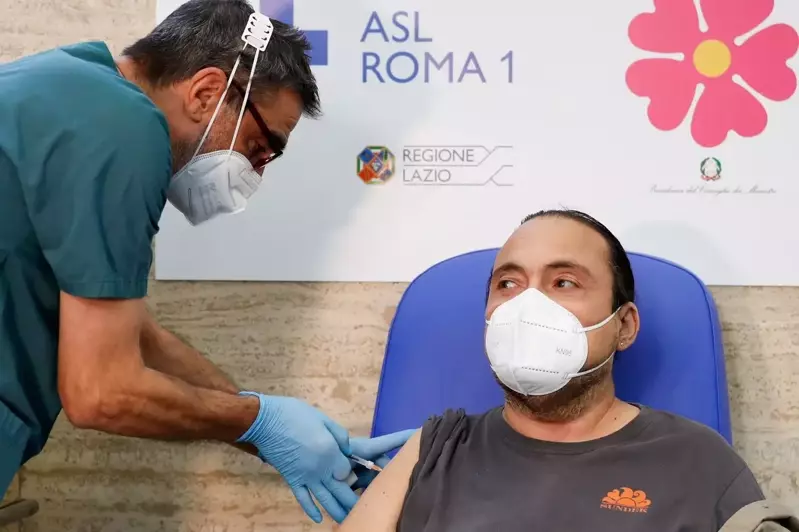
Tel: 551-580-4856 | Email: F.WINNIE.S@GMAIL.COM
有些疫苗终身有效 新冠疫苗为何不行?
聯合報
10/10/2021

华尔街日报报导,麻疹疫苗可以帮助接种者终身免疫,水痘疫苗的效力可以持续10到20年,破伤风疫苗也可以管上十年或更久,然而,新冠疫苗的效力在6个月后就大减。新冠疫苗的效力为什么不能再持久一点?
根据报导,原因有二:新冠疫苗并非使用拷贝型病毒,所以做不到终身免疫;新冠病毒会不断变异,使疫苗失效。
从历史上看,最有效的疫苗使用的是拷贝型病毒,基本上可以做到终身免疫。麻疹疫苗和水痘疫苗使用的就是拷贝型病毒。
非拷贝型疫苗和蛋白质疫苗(如破伤风疫苗)的效力没有那么久,但注入免疫佐剂(一种可以增强免疫反应的物质),疫苗效力可以强化。破伤风疫苗和A型肝炎疫苗就要使用免疫佐剂。
娇生和AZ新冠疫苗使用的是非拷贝型腺病毒,不含免疫佐剂。辉瑞和莫德纳的mRNA新冠疫苗原理不同,不含任何病毒。
为了绕开人体的免疫机制,病毒和病菌有时还会变异,这让事情变得更复杂。麻疹、腮腺炎、风疹以及水痘基本上不会发生变异,但据英国医学期刊,目前至少已发现八种SARS-CoV-2变体,这种病毒正是引发新冠肺炎的罪魁祸首。
美国俄勒冈健康与科学大学教授斯利夫卡说:「这确实让疫苗的起效机制变得更加复杂,就好像慢慢地,你追踪的目标变成不只一个。」
Some vaccines last a lifetime. Here’s why COVID-19 shots don’t.
Researchers have calculated a key number – the threshold of protection – for other vaccines. COVID-19’s is still a mystery.
By Jo Craven McGinty | Wall Street Journal
10/10/2021
Why don’t COVID-19 vaccinations last longer?
Measles shots are good for life, chickenpox immunizations protect for 10 to 20 years, and tetanus jabs last a decade or more. But U.S. officials are weighing whether to authorize COVID-19 boosters for vaccinated adults as soon as six months after the initial inoculation.
The goal of a vaccine is to provide the protection afforded by natural infection, but without the risk of serious illness or death.
“A really good vaccine makes it so someone does not get infected even if they are exposed to the virus,” said Rustom Antia, a biology professor at Emory University who studies immune responses. “But not all vaccines are ideal.”
The three tiers of defense, he said, include full protection against infection and transmission; protection against serious illness and transmission; or protection against serious illness only.
The effectiveness depends on the magnitude of the immune response a vaccine induces, how fast the resulting antibodies decay, whether the virus or bacteria tend to mutate, and the location of the infection.
The threshold of protection is the level of immunity that’s sufficient to keep from getting sick. For every bug, it’s different, and even how it’s determined varies.
“Basically, it’s levels of antibodies or neutralizing antibodies per milliliter of blood,” said Mark Slifka, a professor at Oregon Health & Science University.
(T-cells also contribute to the protection, but antibodies are easier to measure.)
A threshold 0.01 international units per milliliter was confirmed for tetanus in 1942 when a pair of German researchers intentionally exposed themselves to the toxin to test the findings of previous animal studies.
“One of them gave himself two lethal doses of tetanus in his thigh, and monitored how well it went,” Dr. Slifka said. “His co-author did three lethal doses.”
Neither got sick.
A threshold for measles was pinned down in 1985 after a college dorm was exposed to the disease shortly after a blood drive. Researchers checked antibody concentrations in the students’ blood donations and identified 0.02 international units per milliliter as the level needed to prevent infection.
With these diseases, the magnitudes of response to the vaccines combined with the antibodies’ rates of decay to produce durable immune responses: Measles antibodies decay slowly. Tetanus antibodies decay more quickly, but the vaccine causes the body to produce far more than it needs, offsetting the decline.
“We’re fortunate with tetanus, diphtheria, measles and vaccinia,” Dr. Slifka said. “We have identified what the threshold of protection is. You track antibody decline over time, and if you know the threshold of protection, you can calculate durability of protection. With COVID, we don’t know.”
Historically, the most effective vaccines have used replicating viruses, which essentially elicit lifelong immunity.
Measles and chickenpox vaccines use replicating viruses.
Non-replicating vaccines and protein-based vaccines (such as the one for tetanus) don’t last as long, but their effectiveness can be enhanced with the addition of an adjuvant—a substance that enhances the magnitude of the response.
Tetanus and hepatitis A vaccines use an adjuvant.
The Johnson & Johnson and AstraZeneca COVID-19 vaccines use non-replicating adenovirus and don’t contain an adjuvant. The Pfizer and Moderna messenger RNA COVID-19 vaccines, which work differently, don’t contain any virus at all.
Complicating things further, viruses and bacteria that mutate to escape the body’s immune response are harder to control.
Measles, mumps, rubella and chickenpox hardly mutate at all, but at least eight variants of SARS-CoV-2, the virus that causes COVID-19, have been found, according to the British Medical Journal.
“It does make it more complicated for the vaccine to work,” Dr. Slifka said. “You’re chasing multiple targets over time. Flu also mutates. With flu, we’ve adjusted by making a new flu vaccine each year that as closely as possible matches the new strain of flu.”
Flu vaccines can offer protection for at least six months.
Setting aside the complexities of crafting an effective vaccine to combat a shape-shifting virus, some hope has revolved around the possibility of defeating COVID-19 by achieving herd immunity, but, according to Dr. Antia, the way coronaviruses infect the body makes that challenging.
“Vaccines are very unlikely to lead to long-lasting herd immunity for many respiratory infections,” Dr. Antia said. “The herd immunity only lasts for a modest period of time. It depends on how fast the virus changes. It depends on how fast the immunity wanes.”
Part of the problem is that coronaviruses replicate in both the upper and lower respiratory tracts.
“We have good circulation in our lungs and body, but not on the surfaces of our nostrils,” Dr. Slifka said. “We can block severe disease because there are antibodies in the lower respiratory tract.”
But the risk of low-level infections in the upper respiratory tract can persist.
Moving forward, COVID-19 vaccines will be updated to combat variants of the virus, and according to researchers at Imperial College London, the next generation of vaccines might also focus on enhancing immunity in the moist surfaces of the nose and lungs.
In the meantime, avoiding the slippery virus might require another shot.
美国股市动荡,适于做空,如何操作?
(免费讲座 – Oct 11, Mon, 9PM EST)
请扫描海报上二维码:
或直接点击 Zoom 报名链接:
https://zoom.us/webinar/register/6316336221018/WN_yvmcDteARpGx4yjf2g3mww
诚招美国和加拿大法律服务代理
因公司发展需要,诚招美国和加拿大法律服务代理。
要求:
懂英语、或西班牙语、或法语。
能合法工作有社安号或工号。
无需改行, 可以兼职。
大学生和有销售经验优先考虑。
自雇生意公司发美国报税1099,加拿大T4A
有意了解详情, 请扫码加微信, 非诚勿扰!



